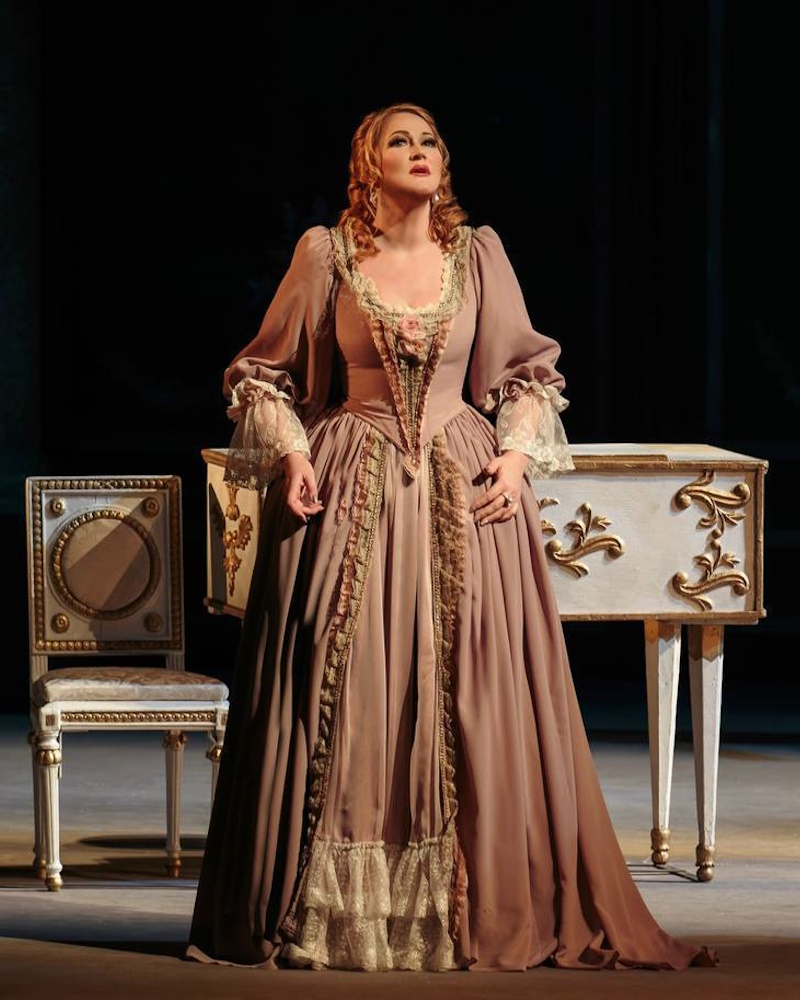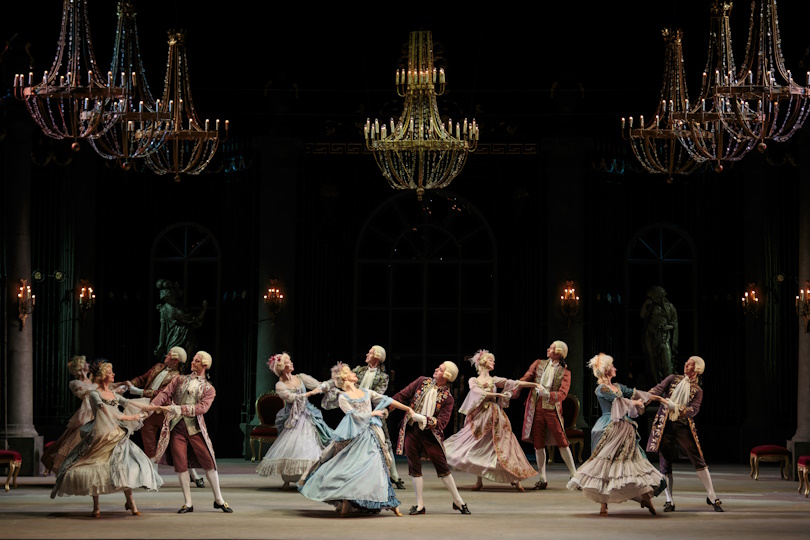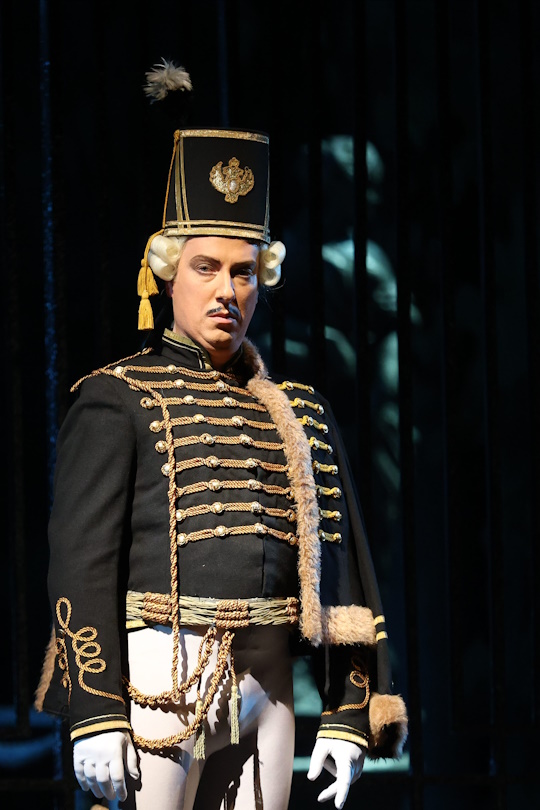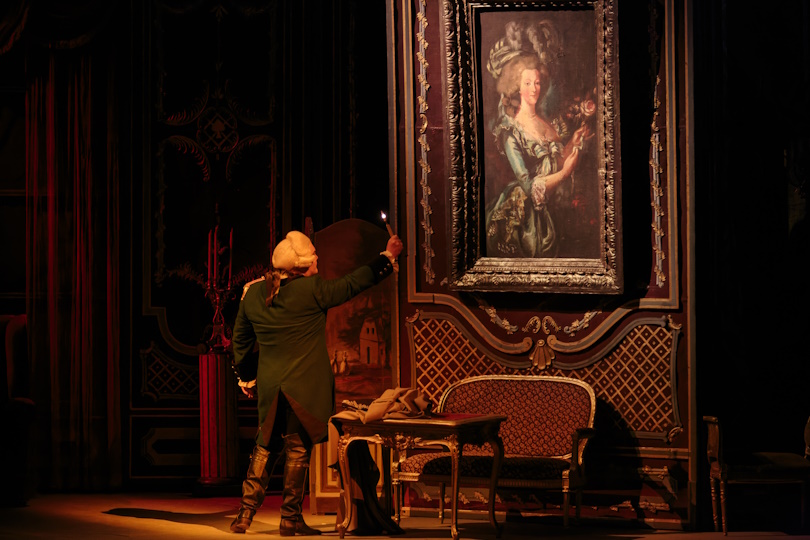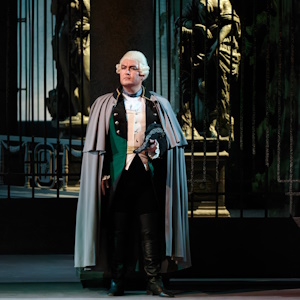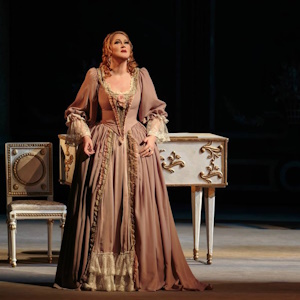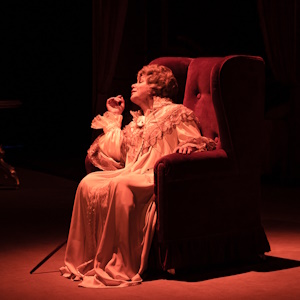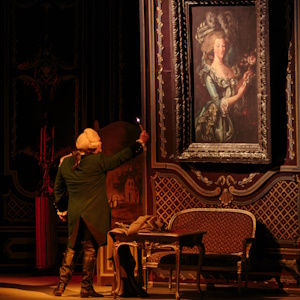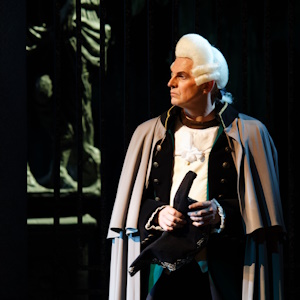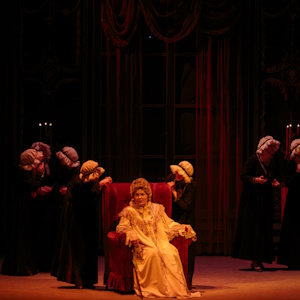The Queen of Spades
opera in three acts
music by Pyotr Tchaikovsky
 performed in Russian
performed in Russian
This production has graced our stage for more than three decades. The aesthetics of this production, closely tied to operatic tradition, have become a symbol of the esteem in which the classics are held. The sights of St. Petersburg and magnificent palace interiors form the backdrop against which Pushkin’s mystical tale unfolds. Symbols of the real world, such as the latticework of the Summer Garden, form a natural setting for the hero’s wild fantasies, within which the hero falls completely beneath the sway of his feverish senses. Caught up in a succession of supernatural events, he loses all touch with time. Tchaikovsky’s inspired music captures the inevitability of his imminent destruction.
Act one
Scene one
Summer gardens in St Petersburg. Early spring. People are strolling in the alleys. Everybody is happy with the first sunny day, but Herman is gloomy. He is desperately in love, but his beloved one is a noble lady and she cannot get married to a poor officer.
Prince Yeletsky announces his soon wedding: he is marrying the granddaughter of an old countess. He introduces Lisa to his friends. Herman is in despair: prince’s fiancée is the object of his passion.
Tomsky tells a fantastic story of a countess who keeps a secret of three winning cards. Herman’s friends mockingly suggest that he find out the countess’s secret. Thunderstorm begins. Herman swears that while he is alive, he will never let the prince marry his beloved girl.
Scene two
Lisa’s bedroom. Her friends celebrate Lisa’s engagement. At last, Lisa is alone. All her thoughts are about the mysterious stranger.
Suddenly Herman appears. Lisa listens to his confessions passionately. Unexpected appearance of the countess interrupts the date. Herman recollects the Tomsky’s story. Now Herman wants to live, to learn the card secret from the countess, to be happy...
Act two
Scene three
A rich nobleman is throwing a ball. All the evening, Herman’s friends scoff at him, asking him whether he will be able to learn the secret of the three cards and if he will marry his beloved.
After the pastoral, Herman sees the countess. When Lisa gives him the keys to her bedroom which connects to the countess’s one Herman thinks it is an omen. Tonight he will learn the secret of the three cards, and knowing it, will win Lisa’s hand.
Scene four
Countess’s bedroom. Herman looks at the portrait of the young countess obsessively. Hearing the steps he hides. The countess enters escorted by her toadeaters. The countess looks at her portrait and recalls her past days. She falls asleep in the armchair.
Herman reveals himself begging her to reveal the secret of the three cards. The countess, who has grown dumb with fright, says nothing. Herman frightens her with a gun — and the frightened old woman falls dead. All his hopes are lost, and he goes nearly mad.
Act three
Scene five
Barracks at night. Herman rereads Lisa’s request about a meeting. His imagination draws him pictures of the countess’s death and funeral. He sees her ghost and she tells him the secret of the three cards: “The three, the seven, the ace!”
Scene six
Lisa is waiting for Herman at the embankment. It is midnight already. Herman appears. Lisa is terrified to hear all his mad ideas; she tries to invoke his mind — all in vain. Possessed with the idea of using the secret of the three cards, Herman pushes Lisa away and leaves for the gambling house. Lisa decides to commit suicide.
Scene seven
The players are gambling in the casino. Suddenly Herman enters and to everybody’s surprise wins two large stakes betting on the three and the seven. Drunk with his luck, Herman bets all his money on the ace. But instead of the expected ace he sees the queen of spades. He can define the features of the dead countess on the card; her smile seems to be mocking at him. Growing mad Herman decides to commit suicide. He sees a ghost of Lisa and dies saying her name.
Premiere of the production: 23 May 1982
Libretto by Modest Tchaikovsky after the novel by Alexander Pushkin
- Stage DirectorStanislav Gaudasinsky
- Stage DesignerSemyon Pastukh
- Costume DesignerGalina Solovyova
- Lighting DesignerMikhail Mekler
- ChoreographerNikita Dolgushin
- Principal PianistNatalia Dudik
- Chorus MastersAlexey Dmitriev, Sergey Tsyplenkov
Sets and costumes produced at the Vozrozhdenie Theatrical Design Studios



